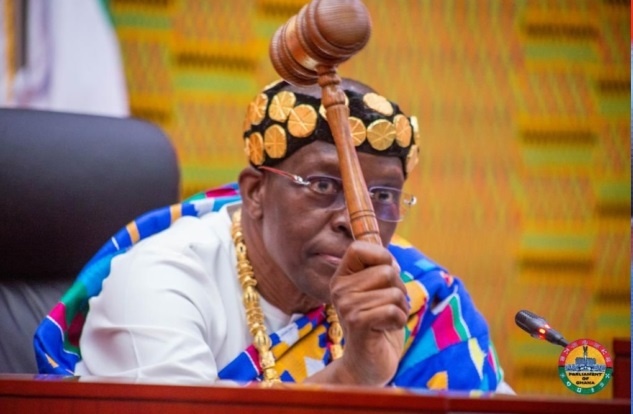Alban Sumana Kingsford Bagbin has made history as he was voted Speaker of the 9th Parliament of the Fourth Republic.
His first tenure was heralded for being characterised by careful negotiation and institutional reform.
As the first opposition-aligned Speaker in Ghana’s Fourth Republic to serve while an opposing party holds the presidency, Mr. Bagbin’s tenure has redefined parliamentary independence in West Africa’s oldest democracy.
The former Nadowli-Kaleo constituency representative, who served as Member of Parliament from 1993 until 2020, successfully steered the 8th Parliament through muddy waters.
The 8th Parliament’s unique composition – with both the New Patriotic Party (NPP) and National Democratic Congress (NDC) holding 137 seats each, plus one independent MP – has demanded exceptional diplomatic skills and constitutional acumen.
Mr. Bagbin’s extensive experience in various parliamentary roles has proved crucial in maintaining legislative functionality despite the political deadlock, analysts said.
The Speaker’s tenure has witnessed several contentious debates, most notably surrounding the Electronic Transactions Levy (E-Levy) and national budgets. Under his stewardship, parliamentary committees have conducted approximately 1,000 meetings, demonstrating remarkable legislative activity despite the political tensions.
Mr. Bagbin’s journey to the Speaker’s chair follows a distinguished career in public service. A graduate of the University of Ghana with a Bachelor’s degree in Law and English, he later earned his Postgraduate Diploma from the Ghana School of Law, being called to the bar in 1982. His academic credentials also include a Master’s degree in Governance and Leadership from the Ghana Institute of Management and Public Administration (GIMPA).
Throughout his parliamentary career, Bagbin has held several influential positions, including Majority Leader (2009-2013) and ministerial portfolios in Water Resources, Works and Housing (2010-2012) and Health (2012-2013).
His extensive experience in the Appointments, Constitutional, Legal, and Parliamentary Affairs committees has informed his approach to legislative governance.
Parliamentary independence has been a cornerstone of Bagbin’s leadership. His weight on procedural discipline and committee effectiveness has strengthened the legislature’s oversight role, analysts further noted.
Statistics from his first tenure as Speaker of Parliament reveal the processing of over 200 bills, including crucial financial and policy reforms. This legislative productivity, achieved despite the political equilibrium, underscores the effectiveness of Mr. Bagbin’s leadership approach.
The Speaker’s tenure builds upon a foundation laid by his predecessors, including Justice D.F. Annan (1993-2001), Peter Ala Adjetey (2001-2005), and Joyce Bamford-Addo (2009-2013), Ghana’s first female Speaker. Each contributed to the evolution of Ghana’s parliamentary democracy, with Mr. Bagbin’s term is particularly notable for its emphasis on institutional reform and bipartisan cooperation.
Born in Sombo in the Upper West Region, Bagbin’s rise from a rural background to the pinnacle of legislative leadership reflects the democratic possibilities in Ghana’s Fourth Republic.
His leadership style, characterised by careful balancing of competing interests and emphasis on institutional integrity, has established new benchmarks for parliamentary governance in the sub-region.










